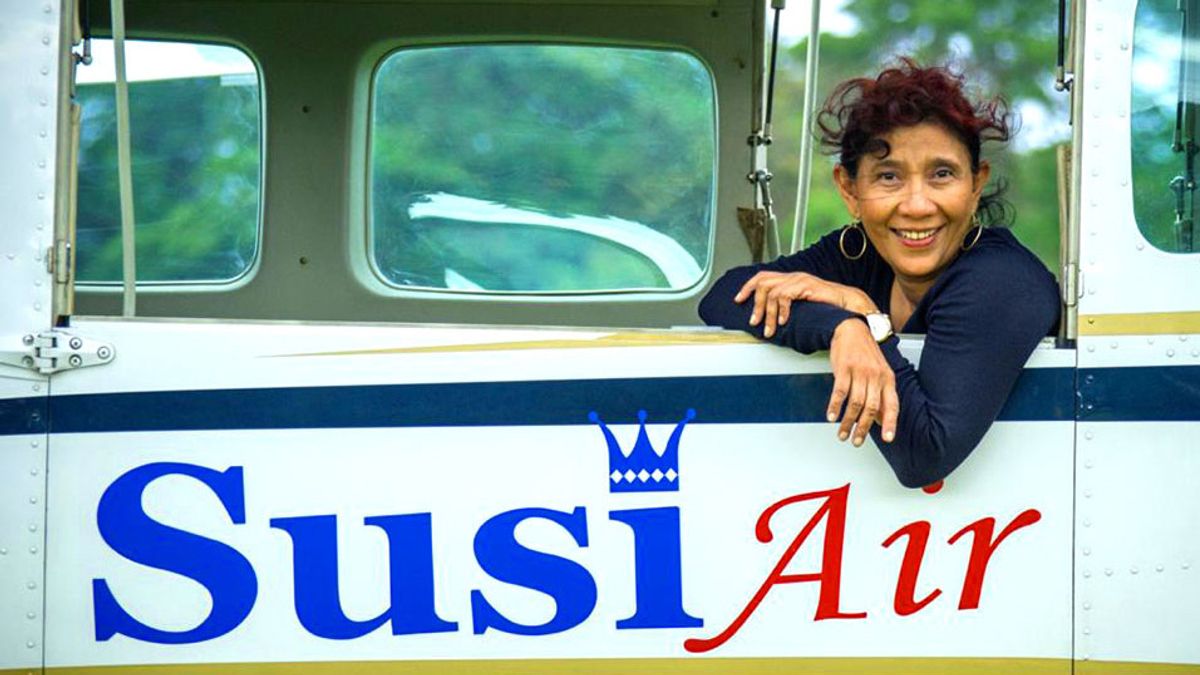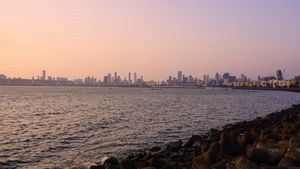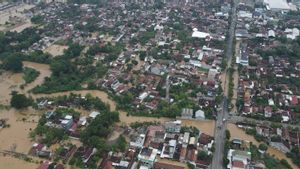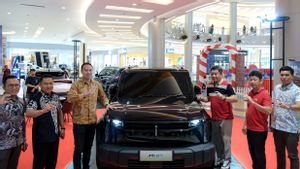JAKARTA - Susi Pudjiastuti is a reliable fishery businessman. The potential for marine products from Pangandaran (West Java) has been turned into a money mine. His business is growing fast. He bought a plane to transport marine products to Jakarta. To save time, he said. However, the plane was actually widely used for humanitarian missions, when the Aceh earthquake and tsunami hit. Susi's generosity in fact opens up other business opportunities. Susi was able to build a commercial airline with her own name: Susi Air.
Living in an affluent family does not necessarily make Susi's career as a businessman smooth. In fact, Susi's steps to become a big businessman are full of twists and turns. The figure who dropped out of school when he was in the second grade of high school started his business from the bottom.
He refused to ask his parents for capital. As a solution, Susi sells her jewelry: keroncong bracelets, necklaces, and rings. The money from the sale of jewelry, amounting to 750 thousand, was used to start a career as a small businessman. He also tried to sell bed linen around and became a seller (basket) of fish.
Susi's talent in selling tends to be in the fishery sector. He was so totally engaged in his profession as a fish basket. Every day Susi is present in the crowd at the Fish Auction Place (TPI). It was there that his business talent was honed.

The proof is, Susi is observant when estimating the price of each fish basket offered by the auctioneer. After all, Susi slowly began to study the various processes in business in the fisheries world. From the buying process, to packaging, to marketing. That is, Susi intervened herself first to take part in the whole process. When the process was carried out, Susi made a big profit.
“After school, Susi sold her jewelery and raised Rp. 750 thousand in capital to sell bed covers around using a Vespa. Then he became a fish collector in Pangandaran in 1983. His business grew until 1996.”
“Susi has established a fish processing factory, PT ASI Pudjiastuti Marine Product, with a superior product in the form of lobster, which is branded as Susi Brand. This fish processing business also expands with markets to Asia and America. Therefore, Susi needs air transportation that can quickly transport her fresh seafood products,” said Tetty Yukesti in the book 51 Women Enlightening the World (2015).
This success did not make Susi feel the upper hand. He continues to devote himself to studying business in his spare time. That way Susi has foresight in doing business. He saw the quality of marine products is very dependent on the speed of delivery. The sooner the seafood reaches the buyer, the higher the fee he receives.
The thing is, fast delivery is a problem. While most of Susi's seafood customers are in Jakarta. To send these marine products by land route takes a long time. Travel time between Pangandaran-Jakarta reaches 9 hours.

The long journey has an impact on the freshness of the seafood that quickly descends and dies in the middle of the journey. The idea of buying a Cessna Caravan plane emerged. The purchase of the Cessna Caravan aircraft then became the forerunner of the emergence of Susi Air in 2004. After all, the Call Sign from Cessna is its own name: Susi Air.
“The idea of owning an airplane was born from the conversation she had with Christian von Strombeck at the beginning of her introduction in 1997. Christian's great support – who later became her husband – made Susi determined to start compiling proposals for loan funds to various banks in 1999. At that time, many people who thinks it's crazy. It's hard to convince banks to lend him."
“They don't believe that Susi can afford the US$2 million plane price. After four years of going back and forth with proposals, only a national businessman understood Susi's idea and was willing to provide funds. When the loan of 4.7 million US dollars was in hand, Susi immediately bought two planes as she had always wanted. The bank loan can be repaid after seven years,” wrote Fyra Fatima in the book 3 Sisi Susi (2015).
Humanitarian Mission and the Birth of a Commercial Airline
The earthquake and tsunami in Aceh on December 26, 2004 brought deep sorrow to all Indonesian people, including Susi Pudjiastuti. The earthquake that caused hundreds of buildings to be destroyed and the victims reached 230 thousand souls shook his heart. He couldn't stay still. Every effort was made immediately.
The Susi Air plane, which was previously used to support fishery business activities, was turned into a prayer. Assisting in the distribution of aid to disaster victims is his new task. After that, Susi Air became the first aircraft from outside Aceh that could penetrate the tsunami location two days after the disaster. Susi lands her plane full of assistance on Simeulue Island. An island closest to the epicenter.
Susi's arrival is like a savior for the local community. Because, since the first tsunami, not a drop of aid was received. Moreover, all land routes were cut off. Local officials even said it took a bit of madness to get aid to areas near the epicenter such as Simeulue Island. And Susi managed to do the "crazy".

“Susi is a 'crazy' person who came to Jeumpa Land. He was neither an official nor a politician. She was just a woman who was moved to see the disaster of the tsunami on the CNN television channel. He went to Meulaboh leaving 700 employees and his fishing business worth 10 million US dollars a year (approximately IDR 100 billion). The day before, two of his planes landed on Simeulue Island.”
“Her husband, Christian von Strombeck, flew the plane there himself because his men were reluctant to fly off schedule. Since then, Susi has taken a 'specialization' in sending aid on the Medan-Meulaboh Simeulue route. When other airlines charge a rental fee of US$1,000 per flying hour, they either give up their Cessna or charge a modest fee,” wrote a Tempo Magazine report entitled Wings of Love in the Sky Meulaboh (2005).
The humanitarian mission was carried out by Susi wholeheartedly. In fact, Susi did not only distribute aid to Simeulue Island alone. But also in many places in Aceh. Since then many other countries have depended on Susi Air to send aid and volunteers. The existence of Susi Air then became famous. After his humanitarian mission was completed, many of his planes were chartered by international humanitarian organizations for post-tsunami recovery.
Maybe at first Susi was not comfortable with the name Susi Air. But over time he liked it. The cost of renting the plane opens up opportunities for Susi Air to go one step further. As a result, Susi had the idea to form the commercial airline Susi Air as an alternative pioneering air travel option in the country in 2005.

“Therefore, Susi then decided to form a commercial airline that does not only transport seafood. In 2005, Susi had three aircraft so that Susi Air was able to start scheduled flights from Medan to several places. Furthermore, Susi Air serves commercial flights on pioneer routes, cargo transportation, and charter flights."
“In 2014, Susi Air's fleet of 49 units consisted of Cessna Caravan, Pilatus Porter, Avanti Helicopter, Diamond, Viper, and Air Tractor. Susi Air operates flights from main bases in Medan (North Sumatra), Jakarta, Kendari and Balikpapan (Kalimantan), Bandung, and Pengandaran (West Java), Cilacap (Central Java), and Papua," concluded A Bobby Pr and his friends. friends in Susi Pudjiastuti's book Untold Story: From the Sea to the Air, Back to the Sea (2015).
*Read other information about HISTORY or read other interesting articles from Detha Arya Tifada.
The English, Chinese, Japanese, Arabic, and French versions are automatically generated by the AI. So there may still be inaccuracies in translating, please always see Indonesian as our main language. (system supported by DigitalSiber.id)









